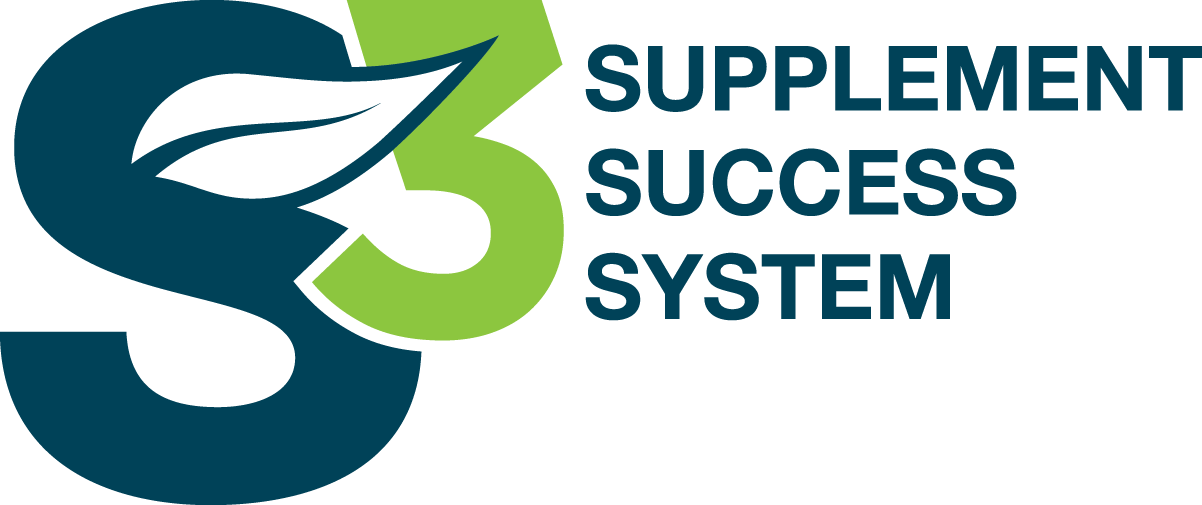 Fitness professionals are often called upon to be the first responders of New Years Resolutions. We’ve all seen the influx of new customers in the first quarter of the New Year with their exodus by Q2. According to Nielsen’s Global Consumer Exercise Survey, 78% of adults exercise and according to the Council for Responsible Nutrition (CRN), 68% of adults consume dietary supplements regularly.
Fitness professionals are often called upon to be the first responders of New Years Resolutions. We’ve all seen the influx of new customers in the first quarter of the New Year with their exodus by Q2. According to Nielsen’s Global Consumer Exercise Survey, 78% of adults exercise and according to the Council for Responsible Nutrition (CRN), 68% of adults consume dietary supplements regularly.
Think about it… nearly 7 out of 10 of your customers are already buying nutritional supplements somewhere! It only makes sense to support them in-house. After all… your customers already know, like, and trust you!
For the fitness professional, understanding the critical role nutritional supplements play on short and long-term health can greatly impact, not only health outcomes of the customer, but the bottom line of the business.
Nutritional supplementation is just that… it supplements a healthy diet and active lifestyle, and fills nutritional gaps to prevent deficiencies that cause long-term disease. Studies have shown us that disease starts from a nutrient deficiency then manifests into biological stress, and if left unchecked, that biological stress turns into a state of disease.
Since nutrients have multiple effects on the body and work in concert with other nutrients, this makes nutrition research very challenging. However, there are thousands and thousands of studies showing cause and effect with various aspects of nutrition. By building nutritionals, such as a broad-spectrum multivitamin/multi-mineral, antioxidants, and polyphenols into your customers diet/program, you’ll help create nutrient balance in an otherwise unbalanced physiology.
The numbers don’t lie. According the Centers for Disease Control and Prevention (CDC) and the U.S. Department of Agriculture (USDA), more than 90% of adults are deficient in at least one nutrient that can cause disease. Even more staggering, only 2% of adults consume their RDA for fruits and vegetables.
Judy Blatman, senior vice president, CRN stated, “The survey is just another indicator of the important role dietary supplements play for men and women of all ages who are trying to achieve a lifestyle of wellness.”
The American Dietetic Association (ADA) has stated that the best nutritional strategy for promoting optimal health and reducing the risk of chronic disease is to wisely choose a wide variety of foods. Contradicting the ADA’s position, a study published in the Journal of the International Society of Sports Nutrition (JISSN), showed even more convincingly that it’s really hard to get all the essential vitamins and minerals from food alone.
Although a small sample in the JISSN study, seventy diets were computer analyzed from the menu of athletes or sedentary subjects seeking to improve the quality of micronutrient intake from food choices. All seventy of these dietary analyses fell short of the recommended RDA micronutrient level and concluded, “food alone may not provide sufficient micronutrients for preventing deficiency.”
So, even though health and fitness professionals alike offer programs to support clients in their journey with eating a clean diet, today’s population simply isn’t attaining the nutrient density necessary to prevent deficiency diseases. These are all very compelling reasons to build nutritional supplements into your business model. You’re not only providing a holistic approach to long-term health benefits, but you’re providing an added value to your service offerings, and capitalizing on a profit center.
This brings us back to the title of this article, “Building Sustainable Results, Beyond The January Rush, Through Nutritional Supplements.” So what are some best practices in making your supplement profit center thrive, not just survive?
First and foremost is to have a structured platform to educate both your staff and your clients on the supplements you carry. Second, is to embed “why” you chose your supplement brand and “how” they support your mission, vision, and core values, as well as how they add value and benefit to the clients’ ultimate needs.
Third, marry your supplements to your other program offerings. By doing this, we give supplementation a high priority and, in the eye of the customer, it’s viewed as a necessity… not discretionary.
Finally, have a tracking system that follows the customers’ journey on their supplement regimen and capture testimonies along the way. These testimonies build their internal awareness of the ongoing benefits your supplements have been and continue to provide.
If all of the above sounds overwhelming, don’t worry! Outsourcing education, sales training, and business-to-business coaching, where most everything is done for you, is really the best use of your time. We’re happy to discuss your unique business model and create actionable steps to get you moving in the right direction.
Click here to visit their website.
 About the Author- Christopher Page, Co-Owner, S3, Supplement Success System
About the Author- Christopher Page, Co-Owner, S3, Supplement Success System
Chris received his degree in Human Physiology from the University of Kentucky and has spent the past two decades working in the Health & Wellness industry. He is a 3-Time Best Selling author and has been featured in Men’s Health magazine in the U.S. and Canada, as well as Women’s Fitness magazine in Europe.
Over many years, he and his wife co-developed and launched an online academy to help educate health practitioners, chiropractors, nutritionists, and personal trainers on the dangers and benefits of nutritional supplements, lack of industry standards, as well as those manufacturers who are leading the way in medical studies.
He currently coaches several hundred health professionals throughout North America. And, he is also highly sought after as a speaker on the benefits of high-quality nutritional supplementation and its role in optimizing long-term health.

